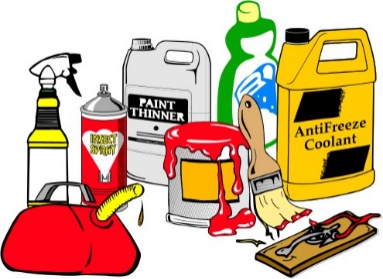
Introduction:
Properly disposing of household hazardous waste is a crucial responsibility for every homeowner. From old paint cans to expired cleaning products, these items can pose risks to both your health and the environment if not handled correctly. In this guide, we’ll walk you through a DIY approach to safely and responsibly manage household hazardous waste.
Identifying Household Hazardous Waste:
The first step in managing household hazardous waste is to identify what falls under this category. Common items include old paints, solvents, pesticides, expired medications, electronic devices, and certain cleaning products. Check labels for warning symbols and instructions on proper disposal.
Creating a Collection Plan:
Once you’ve identified hazardous waste items in your home, create a plan for collection. Designate a specific area where you can accumulate these items until you’re ready to dispose of them properly. This ensures that you don’t inadvertently mix hazardous waste with regular household trash.
Researching Local Disposal Options:
Research local disposal options to understand the guidelines and facilities available in your area. Many communities have designated collection days or drop-off locations for hazardous waste. Check with your local waste management or environmental agency for information on upcoming events and disposal sites.
DIY Hazardous Waste Disposal Guidelines:
When preparing hazardous waste for disposal, follow specific guidelines to ensure safety. For example, seal paint cans tightly, place leaking batteries in plastic bags, and keep medications in their original containers. Following these guidelines reduces the risk of spills and contamination during transportation.
Disposing of Electronic Waste:
Electronic waste, or e-waste, requires special handling due to the presence of toxic materials. Many communities have electronic recycling programs or collection events. If you have old electronic devices, consider donating them if they still function, or find an e-waste recycling location to prevent harmful substances from entering landfills.
Safe Medication Disposal:
Expired or unused medications should not be flushed down the toilet or thrown in the trash. Such disposal methods can contaminate water sources. Instead, check with local pharmacies or law enforcement agencies for medication take-back programs. These programs provide a safe and responsible way to dispose of medications.
Recycling and Reusing Materials:
Before disposing of certain items, consider whether they can be recycled or reused. Some hazardous waste materials, like certain types of batteries, can be recycled. Additionally, check for local organizations or initiatives that accept specific items for reuse, reducing the overall environmental impact.
Proper Storage and Transportation:
When transporting hazardous waste to a disposal site, ensure proper storage and secure transportation. Use sealed containers, and place them in a sturdy box or bin to prevent spills. If transporting larger items, such as appliances or electronics, follow guidelines provided by the disposal facility.
Educating Family Members:
Ensure that all family members are aware of the household hazardous waste disposal plan. Educate them on the importance of responsible disposal and the potential dangers associated with improper handling of these materials. This collective effort fosters a sense of environmental responsibility within the household.
Regularly Reviewing and Updating:
As habits change and new hazardous waste items enter the household, it’s essential to regularly review and update your disposal plan. Stay informed about local disposal options, and adjust your strategy accordingly. This ongoing commitment contributes to a safer and more sustainable living environment.
For a more detailed guide on DIY proper disposal of household hazardous waste, including expert tips and recommendations, visit thietbidinhvithongminh.com.
Taking a proactive DIY approach to household hazardous waste management not only protects your immediate environment but also contributes to the broader goal of sustainable and responsible waste disposal practices.
